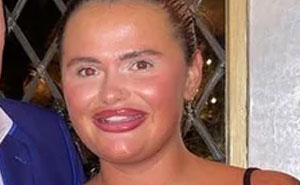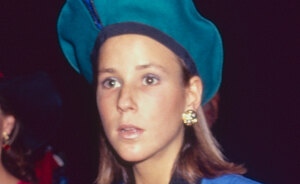
30 Times People Got Embarrassingly Busted For Their Ridiculous Lies, As Shared In This Twitter Thread
If you have ever been caught red-handed in a lie, you know how severely embarrassing it can be. Whether it was an innocent fib or full-blown deceit, your mind inevitably starts racing, thinking of all the ways to save your reputation. Luckily for us, though, these stories are hilariously entertaining. Recently, author and columnist Séamas O'Reilly posted a tweet about an elaborate childhood lie that involves a school essay, an "Icelandic Fish Festival" and the King honoring him by his presence and chatting with him directly.
As if the tale is not wild enough, he then asked his followers to share "the best, worst, and most excruciatingly stupid lies" they've ever been busted with — and boy, did they deliver! Thousands of people rolled up their sleeves and typed out the mortifying moments that turned out to be so ridiculous and amusing, that it almost pardons them of their wrongdoings.
So buckle up and grab a bucket of popcorn because we at Bored Panda have collected some of the funniest stories from this thread. Upvote the ones you liked most and be sure to share your own embarrassing mishaps with us in the comments!
Recently, author and columnist Séamas O'Reilly shared a wild story about how he got caught in an elaborate lie as a child

His tweet inspired other people to chime in with similar experiences
This post may include affiliate links.
Nearly everyone engages in manipulation and exaggeration of the things they have seen, heard, and experienced, or simply tries to pull a fast one on someone every now and then. But even when deceivers think of detailed plans and go over the smallest details a thousand times, one slip and the deceit is out in the open. After all, if you’re going to lie, you should be very good at it. Otherwise, get comfortable with being mercilessly teased by anyone who found out about your little mishap.
To learn more about the field of deception, we reached out to Aldert Vrij, a professor of Social Psychology at the University of Portsmouth, UK, and the author of Detecting Lies and Deceit: Pitfalls and Opportunities. He explained that people sometimes make things up because they are too confident they can get away with it. "Also, people often lie to cover up wrongdoing. Just to admit wrongdoing straightaway means that the game is over. Denying wrongdoing (by lying) always gives a chance to get away with [it]," he told Bored Panda.
*crash* 1:"ohhh carp" 2:"JERRY WHAT DID YOU DO?!" 1:"I don't know it was in the way!" 2:"Well put it back together!" 1:"Im trying, I'm trying."
While it may be hard to admit to mischief, it’s even harder to deny that hearing about these lies being called out in the open is a source of pure entertainment. After all, when people sense that their fibs can quickly get busted, they have to choose whether they want to tell the truth or double down. And that split-second decision can turn a well-crafted lie into an embarrassing disaster. Professor Vrij believes that we’re eager to read these amusing stories "because often people try hard to get themselves out of the situation whereas all they are doing is digging a deep hole for themselves."
We also managed to get in touch with Dr. Chris Street, a senior lecturer in Cognitive Psychology at Keele University, UK, who specializes in lie detection. According to him, research suggests that people are very good deceivers. "Liars do not avoid eye contact or make other bodily movements that we can use to detect them. As far as we know, there is no equivalent of Pinocchio’s nose that we can use to spot the liar," he told us.
"It is perhaps not surprising, then, that we are not particularly good at spotting lies. People tend to be ever so slightly more accurate than random guessing, but it is a very slight difference. Training to detect a lie can help a little, but not by much." Dr. Street explained that when we decide if someone is lying or telling the truth, we tend to guess that they are telling the truth rather than think that perhaps they are lying.
Oh wow. Hopefully this was a while ago. Could be quite a nightmare for any trans man to get that kind of attitude. Calling to pay a gynecologist bill could be awful to begin with, not to mention with this kind of reception.
Dr. Street is also the author of the ALIED theory — The Adaptive Lie Detector account. His research showed "that we tend to guess others are telling the truth because making a lie-truth judgment is a very difficult one (after all, liars look just like truth-tellers). When there are no reliable pieces of information around to help us separate liars and truth-tellers, we rely on our past experience with the world, which is that most of us tell the truth most of the time," he explained.
The ALIED theory argues that a lie that is more likely to be believed is one that has reliable evidence that shows that the lie is actually a truth, Dr. Street told us. "This might sound contradictory, but this may not be as difficult as it sounds."
"Offering insider knowledge that supposedly would only be known by those who attended an event, for example, could be achieved by speaking to someone who attended that event," the lecturer continued. "Doctoring photographs may also lend credibility to a statement. Adding these 'convincers' may increase their believability, but it’s a high-risk strategy: if the person who is judging the statement has the means and sophistication to check up on your supposedly checkable detail (such as law enforcement), you could find yourself in a lot of trouble," Dr. Street explained.
Shrek is a amazing hero! 🤣 I'm curious about the grading you got for that essay 😅
While studies find that our ability to detect lies is no more accurate than a flip of a coin, professor Aldert Vrij pointed out that several conditions can allow us to spot someone’s fibs. "It will help to know the person well," he told us. "It also helps to know a lot of background information (evidence) about the topic so that the lie can be detected by comparing the statement with that evidence," Vrij agreed with Dr. Street’s line of thinking.
Finally, it helps to use specific verbal lie detection tools that have been developed, Vrij added. However, this is not straightforward. "[To use them] you need to know which questions to ask and which verbal cues to pay attention to. An example of one tool is to ask someone to back up their statement with independent evidence the interviewer can check, such as named witnesses who can confirm the statement, CCTV footage, receipts, phone use, etc.," he explained. "Truth tellers typically provide more evidence that can be checked than lie tellers," Professor Vrij concluded.
"I read about in it my crystal ball that can see into the future."
When my sister was little, I think maybe 4 ish, my mum was away and my dad suffered a bad electric shock. My sister went next door to get dinner because daddy was sleeping. They fed her, but it was hours before anyone checked on my dad. ( He was ok, but still a bit scared of electric)
Big fancy words does not equal good. Albert Einstein allegedly said “If you can't explain it to a six-year-old, you don't understand it yourself.”
Tame compared to the rest. I’ve pet a squirrel in a park once :)
You missed out! Not all the books in school were worth reading but there were a lot of good books that I learned a lot from.
This thread is for lies, but in this tweet it sounds like they weren’t lying?
Back in the 90s you weren't supposed to give people your name or personal info online. You were always taught not to do that (now, of course, people give out everything). So I used to watch this show Alias and one of the 'aliases' of the secret agent was Kate Jones. I've literally used that name for over 20 years at this point because it just became habit to use it. I made up a profile for myself to use online. Anyway, I met a group of people online and we became great friends and for years they thought my name was Kate Jones and I gave them my fake story of who I am and I never told them the truth. We were friends for like 10 years and I felt like at that point I had lied for so long I felt weird about telling them the truth. I don't know them any more but I still feel bad about it.
What kind of joke is this? OP had to write an eight page essay at age 7???? This is hard for me.to believe.
I don't think they had to, they just ended up writing it that long. Consider how large a seven year old may write, anyways. It's probably not a huge essay.
Load More Replies...When I was 5 and about to start kindergarten, the teachers mailed out a packet to the parents which included a badge with a number on it for the parents to pin to their kids. It designated which of the two classrooms the kids would go to. My best friend and I were disappointed because we had different numbers, but we wanted to be in the same class. Then one day while we were playing outside, we found a piece of paper with the number "2" on it which was my friends class. We decided that I would pin this piece of paper to my dress and they would let me into her class! Problem solved... or so I thought. I can still feel the embarrassment I experienced as I stood in that doorway and realized that the teachers knew what I was trying to do and they were amused by it!
Back in the 90s you weren't supposed to give people your name or personal info online. You were always taught not to do that (now, of course, people give out everything). So I used to watch this show Alias and one of the 'aliases' of the secret agent was Kate Jones. I've literally used that name for over 20 years at this point because it just became habit to use it. I made up a profile for myself to use online. Anyway, I met a group of people online and we became great friends and for years they thought my name was Kate Jones and I gave them my fake story of who I am and I never told them the truth. We were friends for like 10 years and I felt like at that point I had lied for so long I felt weird about telling them the truth. I don't know them any more but I still feel bad about it.
What kind of joke is this? OP had to write an eight page essay at age 7???? This is hard for me.to believe.
I don't think they had to, they just ended up writing it that long. Consider how large a seven year old may write, anyways. It's probably not a huge essay.
Load More Replies...When I was 5 and about to start kindergarten, the teachers mailed out a packet to the parents which included a badge with a number on it for the parents to pin to their kids. It designated which of the two classrooms the kids would go to. My best friend and I were disappointed because we had different numbers, but we wanted to be in the same class. Then one day while we were playing outside, we found a piece of paper with the number "2" on it which was my friends class. We decided that I would pin this piece of paper to my dress and they would let me into her class! Problem solved... or so I thought. I can still feel the embarrassment I experienced as I stood in that doorway and realized that the teachers knew what I was trying to do and they were amused by it!

 Dark Mode
Dark Mode 

 No fees, cancel anytime
No fees, cancel anytime 































































































































































